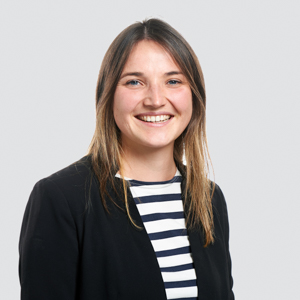by Oriane Pierrès & Alireza Darvishy, ZHAW School of Engineering, Switzerland.
Open Educational Resources (OERs) are educational materials that can be used, adapted, and redistributed by anyone free of charge, and with no or few limitations. They usually are in digital format. OERs have many advantages: they lower the cost of education for everyone, knowledge is not restricted to elite universities, but spreads more easily across the world, and you can adapt existing content to special needs. For instance, lecturers can add captions to a video or can convert an open textbook into braille.
And yet, openness does not necessarily mean that OERs are accessible. By accessible, we mean that people with disabilities are given the opportunity to acquire the same information and engage in the same interactions with OERs as someone without a disability. For OER creators to make their content accessible, they first need to be aware of the issues that students with disabilities face and how to fix them. That is why, at the Zurich University of Applied Sciences (ZHAW), we asked how much do OER creators know about accessibility and what are the measures needed to ensure accessibility of OERs?
After 17 online semi-structured interviews with OER experts from all over the world, the answer was clear: there is still much to do. Our interview participants did have a basic understanding of accessibility issues, but only a few proactively addressed the issues. Why? OER creators face two main difficulties: they lack time as well as the skills and awareness to create accessible content. Usually, there is no university policy or guidelines to make OERs accessible and the topic of accessibility is often considered to be an advanced topic. While it is true that some accessibility measures require more skills and resources (e.g., to create accessible mathematical formulas), many basic accessible features are simple and easy to learn. For instance, adding defined headings takes only a few clicks. It provides a clear structure for people with a visual impairment using a screen-reader, but also anyone who wants to find out rapidly what the document is about. Moreover, there are now accessibility checkers (included in Microsoft office or Adobe Acrobat Pro for instance) that analyse the accessibility of documents and provide information on how to fix issues. OER creators can learn these types of accessibility measures from the very beginning because all it requires is to let them know about them. This could encourage them to learn more about accessibility.
What can the OER movement do to improve the accessibility of OERs?
- OER creators need hands-on training with simple guidelines. They should learn about accessibility from the beginning of their training on OERs. After all, the goal of open education is to provide education to everyone.
- OER creators can take advantage of the reusable nature of OERs to improve accessibility. One resource can be iteratively adapted so that it fits the needs of more and more students. When one creator does not know how to fix one issue, someone else may have the solution.
How can OER creators start learning about accessibility?
They can start with the OER accessibility Toolkit! The University of British Columbia created this very useful toolkit gathering 8 best practices to create accessible OERs. Having a look at the articles by WebAim is also a good way to learn about accessibility.

Author
Oriane Pierrès, research assistant at ZHAW School of Engineering and PhD candidate at the University of Zurich, Switzerland

Author
Prof. Dr. Alireza Darvishy, Professor in Informatics and Head of the ICT-Accessibility Lab
This article is based on “Gauging Awareness of Accessibility in Open Education Resources”, authored by Oriane Pierrès, Alireza Darvishy, and published in 2022 in the Conference Proceedings of the ICCHP-AAATE 2022 Computers Helping People with Special Needs.














